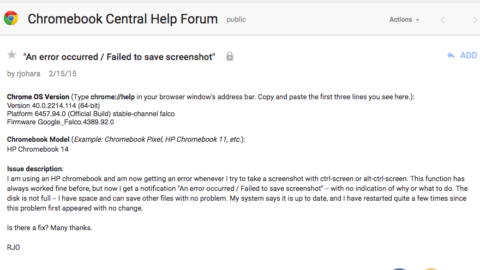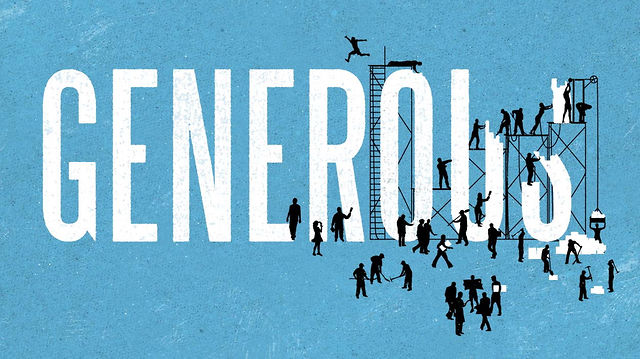“Whatever you can do or dream you can, begin it. Boldness has genius, and magic and power in it. Begin it now.” – Goethe
If words birth an idea, action animates it, making an idea a real, living, breathing organism. The right actions give an idea a place in the world, forever changing both us and our world. It’s a powerful notion—that we bring an idea to life with our words and our actions, and the world is not the same again.
Arguably, this is the realm of the entrepreneur, and although I am entrepreneurial, I am certainly not an entrepreneur.
My entrepreneur friends are a breed of their own. Most are bold and brash idea-generators who are “believers of the first order.” They see tomorrow as clearly as you and I see the sky at dusk. They are quick to enlist anyone and everyone who will listen and believe with them in the merit of their idea. These audacious entrepreneur friends of mine also live under both the blessing and the curse of being idea generators who “make things happen.”
These entrepreneurs have taught me a lot about the miracle of giving life to an idea—many times through the exhilarating experience of the generative process. These entrepreneurs brilliantly bring together creativity, practical need, and action.
Of course, you don’t have to be around entrepreneurs very long to also know that “it doesn’t always work out like they thought. Some of the ideas end with “fire and brimstone,” the crash and burn outcome when ideas go awry. Sometimes these ideas don’t work out because of bad timing, sometimes due to the entrepreneur’s own weaknesses and leadership limitations, and still other times because the idea just didn’t have the horsepower to make it a reality. And therefore, these entrepreneurs’ ideas have the power to turn us into a hero or a goat. All of this is connected to how and why good ideas become a reality.
With that, here are 5 learnings, along with potential action steps, to make your brilliant idea a reality:
1. Give your idea the right words, then give your idea to the right person/people. Great entrepreneurs are really good communicators and have an innate ability to connect their idea to the right people. They start by giving others a reason to care about their idea and how the world would be different if their idea became a reality. They do this by telling stories and using powerful action words, so that a person can see himself in the story, too. At some point, ownership is shared, when a person can clearly see their own place in making the idea become a reality. The very best entrepreneurs are really good at sharing ownership of the idea, thus enlisting others’ commitment, passion, and influence.
Action step: Take some time to articulate your own good idea. Give it the right words. Then schedule 3 appointments with people who are able to you make your idea become a reality. Meet with each person, share the vision, and importantly, define each person’s role in helping you bring your idea to life. Tell the story and make it clear each of them has an important role to play. Then, evaluate–how did it go?
2. Be brutally honest about the costs. Good ideas are a dime a dozen. If you do the math, that makes each idea worth less than a penny (right?!). Instead, great ideas have real costs, and the likelihood of an idea becoming a reality is directly tied accurately evaluating the cost. I have been around my fair share of entrepreneurs who aren’t honest about the costs. Either with themselves, with others, or both. These leaders are some of the most dangerous to be around, by the way. But, for the leader who is honest, who shares the costs candidly, as part of the invitation to sacrifice for the mission, these leaders are often the most inspiring because they are not afraid to ask…and they know what the cost is to the people they are asking to sacrifice.
Action Step: Build a chart to map out the expenses of your new idea in these categories: $ costs (what are the hard costs to get started), time costs (how much time are you asking for), talent costs (what expertise you need), emotional costs (how much emotional energy are you asking for). Then, ask one person to put words to the chart–where are the real risks, relationally, emotionally, and otherwise.
3. Don’t let overwhelming costs (read: “impossible”) be the reason to stop developing your idea. The effective entrepreneur is brutally honest about the costs, yet also finds ways to “push forward” in the face of the “impossible.” The reality is that good ideas are a dime a dozen, but great ideas are special, and are worth overcoming what might appear to be “overwhelming” costs.
Action Step: Write down the end of the story—how will the world be different if you and your team are able to execute on the great idea. When we have a clear idea of the value of a great idea made a reality, when have the hope and expectation to overcome the overwhelming costs.
4. Clarify the “why”: A brilliant idea has obvious value, but every idea, no matter how brilliant, must also answer the “so what?” question. Simon Sinek says that you have to “start with why” (see the TED Talk), pointing out that “everyone knows what they do, many know how they do it, but few articulate ‘why’ they do it.” The world is awaiting the inspiration of a great idea that clearly articulates the “why.”
Action Step: Watch Simon Sinek’s TED Talk on answering the why (http://bit.ly/1j0lJVm). Then, with your core team, answer this question together, and put your answer up, somewhere where you will see it often.
5. Give: Generosity is the currency of ideas. I’ve observed that the most generous entrepreneurs are often the ones with the best ideas. Is it because collaboration is their “default setting” and therefore they are always putting new ideas together in creative ways? Or, is it through their willingness to contribute to others’ good ideas, they also receive the good will of others?
I am not sure what the exact correlation is, but I can tell you, my generous entrepreneur friends very often have the best ideas. So, when you are starting out with a new great idea, the temptation will be to horde resources and hide your idea. While there is a legitimate reason to protect the intellectual property of your new idea, I have found most ideas are in more danger of being squandered than they are of being stolen.
Action Steps: Especially while you are developing your own great idea, look to participate in at least one other strategic engagement for an idea other than your own. This may be formal or informal. By participating in someone else’s creative process, you will not only express generosity, but you’ll also see how this same process will help you in your own iterative process.
What are your best ideas? What have you learned from being an entrepreneur? Or, from your entrepreneur friends who have taught you about idea-generation?










